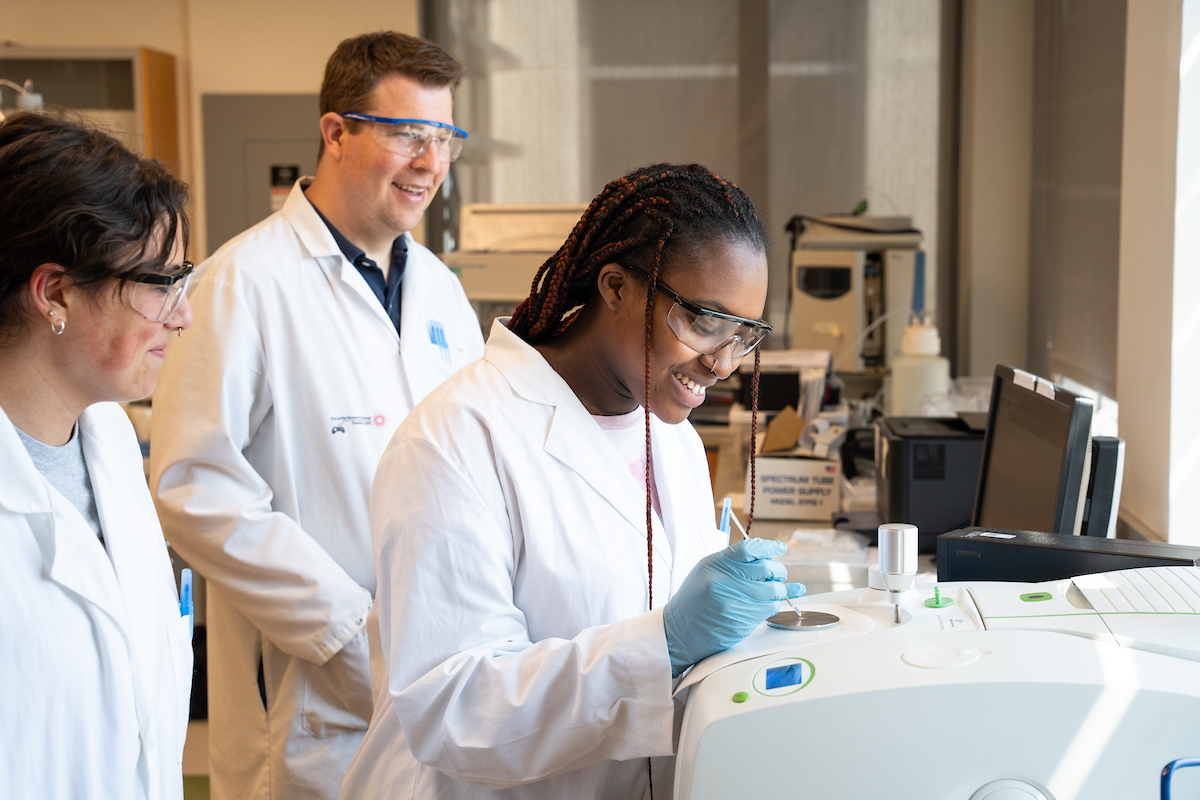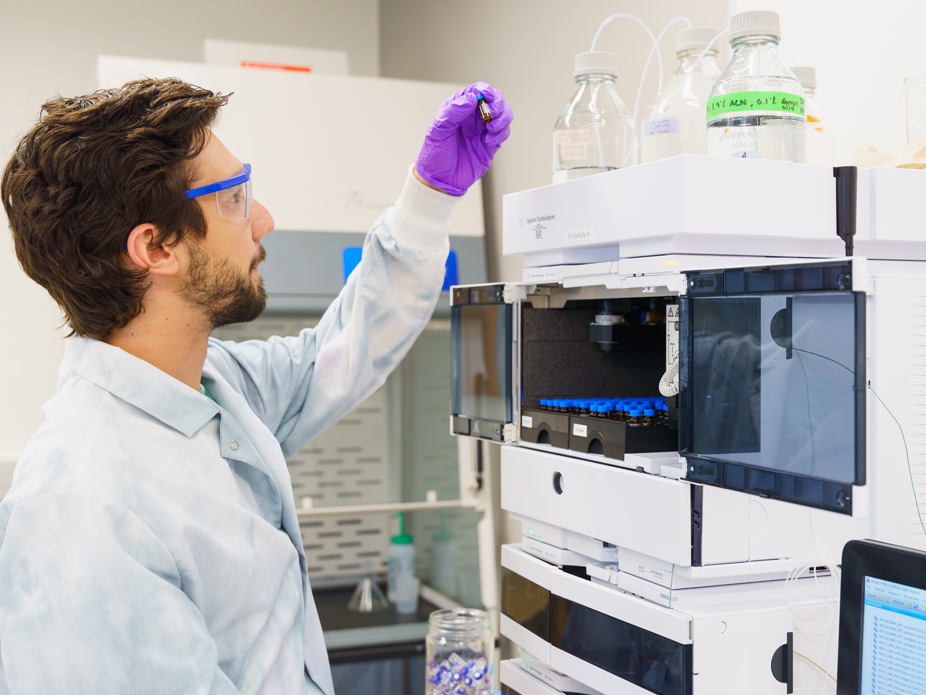Undergraduate Research
Eighty-six percent of Chemistry and Biochemistry majors engage in research at some point in their undergraduate careers.
With a strong research culture and rich history of support and commitment to undergraduate research, the Department of Chemistry and Biochemistry provides you with opportunities to gain mentorship, advance the scientific discipline and enhance your career development.
We're dedicated to mentoring undergraduate students.
Our department is composed exclusively of undergraduate students, so you will be planning and conducting experiments, analyzing results, and communicating your findings to others, all under the direct guidance of a Ph.D. faculty mentor.
All research students present their projects on campus, and most of them present at regional or national conferences. You can join a research lab in our department as a sophomore or even as a first-year student. You don’t need advanced knowledge to start a project; the great thing about research is that you’ll learn as you go.

- Preparation for Medical School or Graduate Programs: Undergraduate research provides valuable experience to prepare you for medical school or advanced studies in chemistry, biochemistry, and related fields.
- Earn Course Credit for Your Research: Earn credit hours in research from graded individual enrollment courses or complete an capstone senior project called a bachelor's essay.
- Earn Summer Cash: Summer research often offers an opportunity to contribute to meaningful scientific advancements while getting paid for your work. Faculty members secure funding for summer research positions through grant support from agencies like the National Science Foundation, National Institutes of Health, Research Corporation, and American Chemical Society Petroleum Research Fund as well as from private donations.
- Enhanced Resume: Gain an advantage in your job search, grad school or medical school application by demonstrating your hands-on research experience and your commitment to the field.
- Mentorship: You'll work closely with experienced faculty members while building professional relationships that extend well beyond graduation.
- Research Contribution: Make valuable contributions to the field of chemistry and biochemistry by generating new knowledge, presenting your findings at conferences, or collaborating on publications. Chemistry and Biochemistry faculty regularly publish scientific articles with undergraduate students as co-authors.


Mixtures, Molecules & Mentors
Undergraduate research provides you with mentorship opportunities with renowned faculty and extensive lab experience with sophisticated instruments such as our high-performance liquid chromatography (HPLC) systems to separate, identify and quantify specific components in mixtures.
